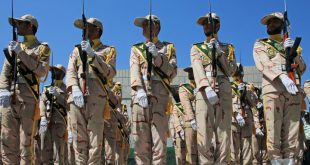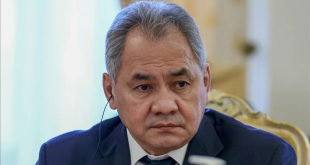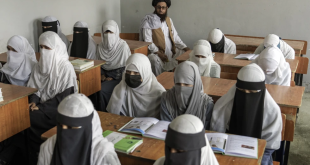AT Monitoring Desk-KABUL: A former lawmaker and prominent Pakistani politician Afrasiab Khattak said that Pakistani security establishment’s support for the Afghan Taliban is an open secret.
He is not the only one, as several other politicians and critics slammed security establishments of their country for their ‘good and bad’ terrorist approach.
He said that “unfortunately”, the state couldn’t muster the political will to implement National Action Plan. “The only point fully implemented was the creation of military courts. Reforms in seminaries, disallowing proscribed organizations to function under new names, mainstreaming the tribal areas, and taking action against militants in [the eastern province of] Punjab were never implemented,” Khattak was quoted as saying a report by Gandhara/Radio Free Europe Radio Liberty.
“It is also public knowledge that non-state actors find no obstacles to their agenda,” he said, citing examples of how pro-Taliban and anti-India Islamist organizations still openly advocate that their approaches be adopted as official state policy.
“Proscribed organizations not only indulge in public activities but also give themselves the right to determine Pakistan’s regional policy,” he said.
Khattak, a longtime critic of Islamabad’s support for hard-line Islamist groups, said he sees no benefit to the current approach. “Our country is at daggers drawn with three out of four neighbors and faces growing international isolation,” he concluded.
His comments took place after Quetta, the capital of Pakistan’s beleaguered southwestern Balochistan Province, is in mourning after a suicide attack at the main gate of a hospital killed 71 civilians.
The August 8 bombing, claimed by a splinter group of the Pakistani Taliban, targeted lawyers who had gathered to collect the dead body of a colleague assassinated earlier in the day.
The attack has prompted politicians and critics to question Islamabad’s sincerity in going after all the Islamist militant factions operating out of Pakistan.
Some of them have claimed credit for attacks on Pakistani state and security forces while others mainly fight insurgencies or launch attacks in neighboring India, Afghanistan, and Iran.
Critics accuse Pakistan’s powerful security institutions of aiding and protecting the “good” militants — those who launch attacks in India and Afghanistan — while going after the “bad” terrorists whose attacks have killed more than 60,000 civilians and soldiers since 2004.
“Does the security establishment exist to protect Pakistan, or does Pakistan exist to [perpetuate] the security establishment?” asked lawmaker Maulana Muhammad Khan Sherani, employing a common euphemism for Pakistan’s powerful army.
“We deserve to know the truth. Powers within this country are backing the terrorists. These people attacking us are from among us,” he told the National Assembly or lower house of Pakistani Parliament, where he represents Balochistan.
Sherani rejected claims by a senior Balochistan official that India’s main foreign intelligence agency, the Research and Analysis Wing (RAW), orchestrated the attack. Barely an hour after the attack on August 8, Balochistan’s most senior elected official, Chief Minister Sanaullah Zehri, blamed RAW for the attack. Pakistani officials frequently blame its regional archrival for the country’s domestic security woes.
“There is no RAW in Balochistan,” Sherani told lawmakers. “They are the same people we nurtured,” he said, referring to Pakistan’s decade-old support for Afghan insurgents and Islamist factions often blamed for launching attacks in India.
Many in Pakistan are deeply disappointed by Islamabad’s failure to implement the comprehensive counterterror National Action Plan (NAP) that the political and military elite adopted in response to a school massacre. The Pakistani Taliban claimed responsibility for the December 2014 attack on the Army Public School in the northwestern city of Peshawar in which gunmen killed nearly 150 schoolchildren and teachers.
A complete ban on militant factions topped NAP’s 20 points, which included a range of legislative and administrative measures to prevent terrorist attacks and reverse religious extremism, which fuels recruitment for militant factions.
 Afghanistan Times
Afghanistan Times




